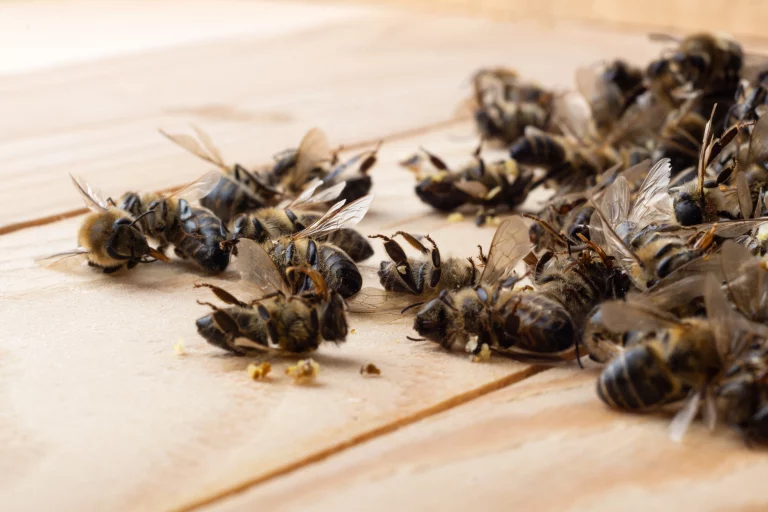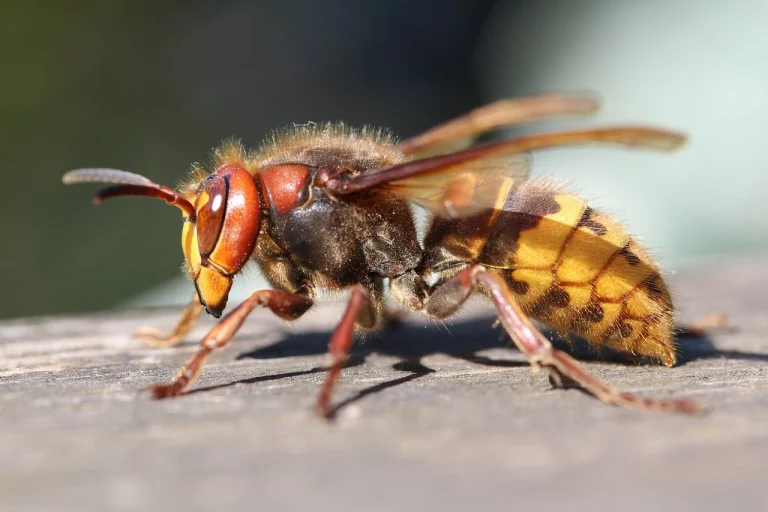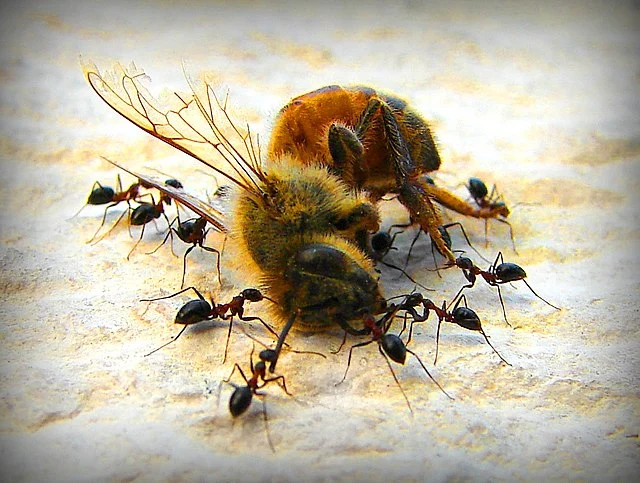Every year the population of honey bees decreases, and the threat of their complete extinction becomes real. What will our world be like without the main pollinator?
A man can live without oxygen for three minutes, without water for three days and without bees for four years. At least that’s what Einstein thought. The scholar’s quote appeared in 1941 in the Canadian Bee Journal. It follows that the death of bees for humanity will be no better than a global catastrophe: a volcanic eruption, a fall of meteorites or an explosion of the Large Hadron Collider. The result will always be the same.
WHAT'S THE PROBLEM?
The decline of bee populations began in the mid-twentieth century, but has peaked in the last twenty years. There is not a single reason, but the main culprit has been found: it is a human. Agriculture has almost universally switched to chemistry: nitrogen fertilizers, pesticides, etc. They do not kill insects, but, according to scientists, they lower their immunity, and viruses do not sleep.
Professor Peter Neumann talks about the plague of bees – varroatosis, a disease carried by a microscopic mite: “It is dangerous because it sucks all the vital juices from the bee. This is the most common bee disease, it is difficult to get rid of these mites, and the treatment of weakened insects takes a long time and rarely leads to the desired results.”
At the same time, often beekeepers do not really care about the health of members of hives and continue their activity at a normal pace, and also carry bee colonies for great distances. For example, in the United States, hives can be transported from Florida to California to pollinate crops.
These long journeys put enormous stress on the bee colonies. And this also leads to the “syndrome of the destruction of colonies“. This phenomenon was described by American beekeepers in 2006.
In the course of such a “disease”, insects leave their colonies and never return to them. Bees can not live separately outside the hives and soon die. The strange behaviour is also caused by chemicals and radio signals, which, according to scientists, drive winged workers crazy.

WHAT IF...?
However, what if bees die or their population drops to a critical level? Will Einstein’s prediction – “no bees – no pollination – no food – no man” – come true?
It is necessary to remember that there are other natural pollinators in the world: flies, butterflies, birds, bats, wind. In addition, not all plants are pollinated by bees. In the past, the flora of North America and Ireland lived well even without them. It was the men who brought the bees there.
But since the great geographical discoveries, considerable changes have taken place in the world. The population has grown and the need for food has also grown.
Today the loss of bees, to which we owe 1/3 of the total harvest, cannot occur without consequences. The Times and Business Insider cite the following chain, referring to expert advice: the higher the mortality among insects, the faster unprofitable beekeeping will be. People will start giving up their craft, and the already scary statistics will only get worse.
Since most of the crop depends on bees, humanity will have to “tighten its belt”: the food stalls will be empty, the prices of the remaining products will skyrocket. And you will no longer be able to rely on other components of our daily diet.
Since some plants will disappear, food will also decrease for livestock, which means goodbye milk, cheese, yogurt and, ultimately, beef. In general, whatever you can say, a world without bees will not be able to afford the current population of people.

ANY ALTERNATIVES?
Simultaneously looking for a solution to stop the increase in bee mortality, scientists are looking for their replacement. The first candidate is a hornet, it also pollinates plants and collects honey, but in microscopic quantities. For comparison, in one experiment, after the honey harvest, 34 kg of honey from two bee colonies were pumped, and the hornet honey was transferred using a pipette (48 g).
But, as a pollinator, the hornet has long proven itself well. Hornets are even more laborious than their counterparts and are cheaper to maintain. But there is the same problem that bees have: due to the harmful effects of human activity, they also die.

The second potential substitute for bees is humans. Study authors “A World Without Bees” Benjamin Alison and Brian McCollum immerse the reader in a world where people have learned to live without flowers for honey. This is not the Earth of 2070, but the modern province of Sichuan, China. There the bees died twenty years ago, because of the pesticides already mentioned. However, the region remains the largest exporter of pears, which in the world are pollinated by bees and here by people. Thus, workers pollinate flowers manually. Weird, inconvenient, expensive, but it works.

Another candidate is a robotic bee. Harvard engineers are currently developing the new assistant, according to the Guardian. Experimental models have already been invented. Robots with their wings follow the movements of the bee and then pollinate the plants. According to scientists, this project will soon be implemented.

Yet, the world needs bees. These creatures are so much ancient that it is even frightening to imagine how much older and wiser they are than humans. Scientists believe that they appeared about 120 million years ago, along with the first flowering plants.
In Burma, a bee that is 100 million years old was found (see the photo of this amazing creature below)! And about 65 million years ago, nature erased dinosaurs from the “book of life” forever, but the bees survived! And we hope that we – humans – will not contribute to the end of these winged workers, after millions of years of their existence!









drover sointeru
26/01/2026 at 07:47Hey there, You’ve done an incredible job. I will certainly digg it and in my view recommend to my friends. I am confident they’ll be benefited from this web site.
tlover tonet
04/01/2026 at 00:48Thank you for the auspicious writeup. It in truth used to be a amusement account it. Look complex to far added agreeable from you! However, how can we communicate?
vorbelutrioperbir
16/05/2025 at 19:56Pretty component of content. I simply stumbled upon your site and in accession capital to claim that I acquire actually enjoyed account your weblog posts. Any way I’ll be subscribing for your augment and even I fulfillment you get admission to persistently quickly.
casino
15/04/2025 at 22:41Here, you can find a wide selection of online slots from leading developers.
Players can try out traditional machines as well as modern video slots with vivid animation and bonus rounds.
If you’re just starting out or an experienced player, there’s a game that fits your style.
slot casino
All slot machines are instantly accessible 24/7 and compatible with PCs and smartphones alike.
No download is required, so you can jump into the action right away.
Site navigation is user-friendly, making it convenient to explore new games.
Join the fun, and dive into the excitement of spinning reels!
zoritoler imol
15/04/2025 at 16:54Hey very cool site!! Guy .. Excellent .. Amazing .. I’ll bookmark your site and take the feeds additionallyKI am happy to search out numerous helpful info right here within the post, we’d like work out extra strategies in this regard, thanks for sharing. . . . . .
gameathlon.gr-gaics
19/03/2025 at 07:07Stake Casino GameAthlon Online Casino is considered one of the top online gambling platforms as it was one of the pioneers.
Online gambling platforms is growing rapidly and the choices for players are abundant, not all online casinos provide the same quality of service.
This article, we will examine the most reputable casinos available in the Greek market and what benefits they provide who live in the Greek region.
The top-rated casinos of 2023 are shown in the table below. Here are the best casino websites as rated by our expert team.
When choosing a casino, it is important to check the validity of its license, software certificates, and data protection measures to ensure safety for players on their websites.
If any of these elements are missing, or if we have difficulty finding them, we avoid that platform.
Software providers are another important factor in determining an gaming platform. Typically, if the above-mentioned licensing is missing, you won’t find reliable providers like Evolution represented on the site.
The best online casinos offer classic payment methods like Visa, but should also provide e-wallets like Paysafecard and many others.
vorbelutrioperbir
12/03/2025 at 08:16Aw, this was a really nice post. In thought I would like to put in writing like this additionally – taking time and precise effort to make a very good article… but what can I say… I procrastinate alot and under no circumstances appear to get one thing done.
zoritoler imol
01/02/2025 at 14:06You actually make it seem so easy with your presentation but I find this topic to be actually something which I think I would never understand. It seems too complicated and extremely broad for me. I’m looking forward for your next post, I’ll try to get the hang of it!
tlovertonet
16/01/2025 at 21:11Hey there! I’ve been reading your web site for a long time now and finally got the courage to go ahead and give you a shout out from New Caney Texas! Just wanted to tell you keep up the great job!
Add a comment